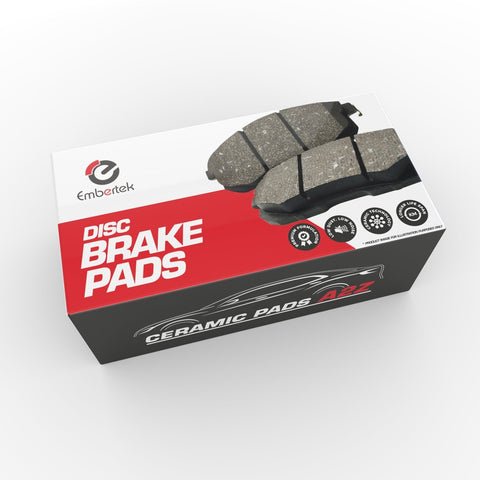How long Brake Pads last and Signs to replace a new one
So How long Brake Pads last? The average life of brake pads falls between 40,000 and 105,000 KM. However, you might need a replacement before the 40,000 mark, or they can last after 105,000 KM as well. The variation in lifespan depends on various factors, some of them including:
- Brake pad material
- Driving habits such as braking too quickly or abruptly.
- Your driving environment - urban areas require you to use your break more, while rural locations do not demand as much.

Warning signs to replace new brake pads
Your car is pretty good at telling you when there's a problem. You can catch issues with brake pads and get a replacement on time if you pay close attention to the following warning signs:
1. Squealing
If stepping on your brakes creates a squealing sound, it might signify a worn-out brake pad. Your car’s brake pads feature a wear indicator that makes a squealing noise if it touches the brake rotors. Hearing this sound means your brake pads are considerably worn out, and you need a replacement quick.
2. Screeching, Clicking, or Grinding
An occasional screeching, clicking, or grinding noise is nothing to worry about, however, if it persists, you might need brake pad replacement. These sounds can indicate that dirt or debris is coming in contact with the brake pads or brake rotors.
3. Pulling
Worn out brake pads can pull your vehicle from one side to the opposite side when you're hitting the brake pedal. If you experience this, get your brake system checked right away.
Visual Inspection
A visual inspection is the simplest method for confirming worn-out brake pads, just turn your car’s wheels all the way to the right or to the left to view the brakes. You’ll see the brake pad fitted with the brake rotor and the pad should be more than one-fourth inch wide. If it appears to be less, get your brake pads checked by a professional.
How to extend brake pads lifespan
To get the most out of your brake pads and save money in the long run, follow the tips below:
- Initially slow down when you need to stop your car completely from high speeds.
- Brake taps cause your brake pads to wear quicker, so avoid pressing the brake pedal with your left foot while your right remains on the accelerator.
- Don’t pack your car with heavy items because it increases the total mass and your brakes need to use more energy to stop your vehicle.
- Flush your vehicle’s brakes every two years especially if you own an older car.
